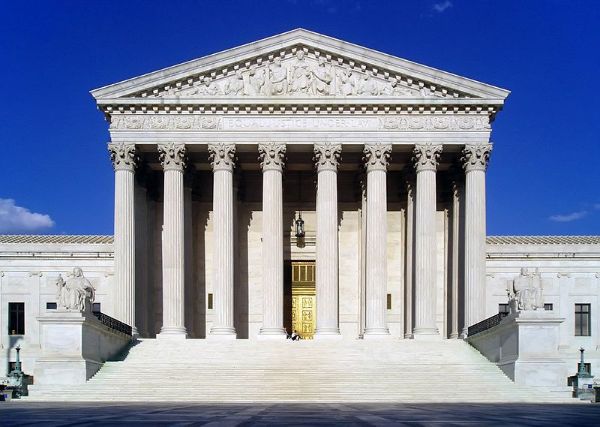Challenge to Voting Rights Act to be Heard by Supreme Court

The Supreme Court has granted cert. in the case of Shelby County v. Holder, a suit filed regarding an Alabama county and its relation to the Voting Rights Act. The challenge points to a provision in the law that requires states with a history of racial bias to seek permission before changing their voting laws from either the US Attorney General or a three-judge panel of the District Court of the District of Columbia.
The Voting Rights Act was initially passed in 1965 as a plank of a larger overhaul of civil rights legislation. The heat of the law addresses discriminatory voting practices that disenfranchised African American citizens. Since 1965 the Act has extended protection to voters whose English proficiency can be a barrier to voting, prohibits purging voter rolls of voters who did not participate in the last election, and ensures that voters who appear at a poll can participate without an ID if they sign an affidavit.
The particular provision that will be argued before the court is: Whether Congress' Decision in 2006 to reauthorize Section 5 of the voting Rights Act exceeded its authority under the fourteenth and fifteenth Amendments and thus violated the tenth Amendment and Article IV of the United States Constitution.
Section 4(b) requires that the new voting rules within covered jurisdictions must be precleared by the Attorney General or the three-judge panel in a District Court in the District of Columbia. Some states are covered as a whole, including Alabama.
The challenge comes in the wake of an election where minority voters played a determinative role in national leadership and where several states attempted to implement voting restrictions that would fall especially hard on minority groups.
Advocates of the Voting Rights Act provision point to states that are implementing new election rules that make voting more difficult, including for minority groups. These practices include voter ID laws, abbreviated early voting periods, and disenfranchising ex-felons.
Article I Sec. 4 of the Constitution declares that “the Times, Places and Manner of holding Elections for Senators and Representatives, shall be prescribed in each State by the Legislature thereof; but the Congress may at any time by Law make or alter such Regulations, except as to the Places of chusing Senators.”
Opponents of the Voting Rights Act argue that the federal law oversteps the bounds of Article I Sec. 4 and that the provisions are redundant as the 10th and 15th Amendments provide ample protection to minority groups from discriminatory voting practices and leave the States the authority to decide how elections will be conducted within their borders.
The case sprung from a local redistricting effort carried out in Shelby county that may have played a role in the defeat of the sole African-American incumbent on city council in Calera, AL.
Oral arguments will likely be heard in early 2013 with a decision in the early summer.




